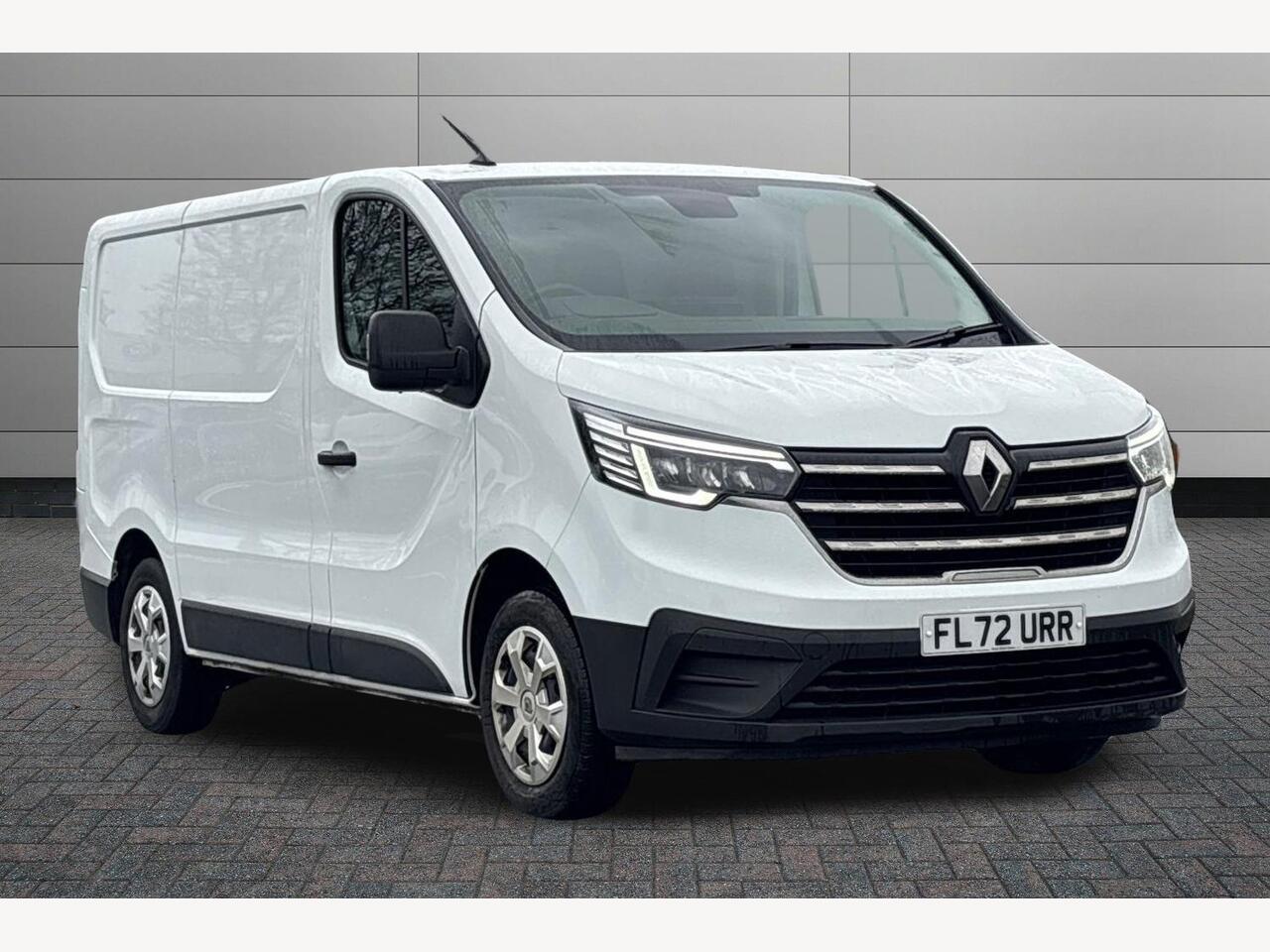Gearing up the gallery
Copyright 2026 heycar - All rights reserved |
Registered address: 5 New Street Square, London, United Kingdom EC4A 3TW
Registered address: 5 New Street Square, London, United Kingdom EC4A 3TW
It’s not as familiar to UK drivers as the Ford Transit, but the Renault Trafic name has been around since 1980, across three generations of panel van. And since the second generation model of 2000, it’s been among the most stylish vans on the market, while offering the practicality and utility essential to it remaining competitive.
The third generation arrived in 2014 and was comprehensively updated in 2019, which is the model we’re covering here. It remains one of the bigger players in the van market, and shares its body styles and engines with the Nissan Primastar, if you have a particular allegiance for another manufacturer. Well-equipped and good to drive, the Trafic should be on your shortlist.
Vans have fairly long life cycles which is why the current Renault Trafic has been around in broadly the same form since 2014, and that model replaced one that had arrived in 2000. But manufacturers also update features, engines and styling quite regularly, so post-2019 Trafics, like the model we’re concentrating on here, still feel pretty fresh - and it’s well worth a look as a used buy as a result.
Those 2019-on models got a range of 2-litre dCi turbodiesel engines, which are a good step ahead of their smaller predecessors in all the areas that matter. The Trafic drives well regardless of output or whether you opt for the manual or EDC automatic gearboxes. It rides well too, even when empty or only lightly loaded, and the interior adds to the comfort levels - though it could be better for cabin storage.
The Trafic doesn’t offer quite as many body or roof options as some vans, but Renault would tell you the smaller Kangoo and larger Master cover any ground that the Trafic doesn’t, so the two lengths and single roof height in regular panel van form should do the trick. There’s a six-seat crew van model too, and a Passenger model with up to eight seats for pure people-moving duties.
You’ll no doubt be familiar with some of the alternatives to the Trafic, including the Ford Transit Custom, Volkswagen Transporter, and the Peugeot Expert and its various siblings. Among them there’s a wide choice of driving experiences, features, and body styles, and while the Trafic isn’t quite a class leader, it’s still very much worth a look.
We’d focus on finding a post-2019 Renault Trafic, thanks both to an improved standard equipment and feature list, but also the more powerful and torquey 2-litre dCi engines that came in at that point. Even the basic model gives you 130PS, which is more than you’ll find in an entry-level Ford Transit Custom or Volkswagen Transporter. Equipment levels are decent across the board, and opting for the most affordable Advance spec shouldn’t be too much of a hardship.
Some vans can be a bit mean with equipment in their most basic variants, but the Trafic’s kit list wouldn’t look out of place on an entry-level Clio, with a touchscreen display and air conditioning both standard, something a few rival vehicles require you to step further up the range to find. Manual and EDC dual-clutch automatic transmissions give you some choice, while bear in mind that the options list available to new buyers means some vans may be better equipped than others.
The Renault Trafic’s dimensions are:
The Renault Trafic’s load capacity is:
Like all vans, the Trafic gets a flat rate of VED or ‘road tax’, which for the 2024/2025 tax year is currently charged at £335, or £175.88 in six-month instalments by Direct Debit.
Renault doesn’t quote insurance group ratings for the Trafic, but with so many potential variants, and an even greater number of use cases, your premium as an owner or operator will vary wildly - so you’ll need to check insurance on an individual basis to find a suitable quote.

£25,200
inc. VAT
£14,988
inc. VAT£29,398
inc. VAT£18,950
£27,462
inc. VAT£35,994
inc. VAT£26,340
inc. VAT£32,394
inc. VAT£28,140
inc. VAT£21,495
£20,994
inc. VAT£34,676
inc. VAT£21,298
inc. VAT£19,432
inc. VAT£20,988
inc. VAT£22,794
inc. VAT£17,399
£18,594
inc. VAT1-18 of 40 vehicles
What is the most popular colour for Renault Trafic ?
What is the most popular gearbox for Renault Trafic ?
What is the most popular fuel type for Renault Trafic ?
What is the most popular engine for Renault Trafic ?
What is the average mileage for Renault Trafic ?
17315
How many Renault Trafic cars are available for sale?
89